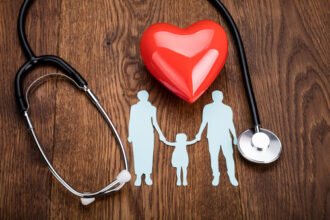The Saturday Evening Post has published a provocative article (How Doctors Die) by retired physician Ken Murray, making a strong case that over-treatment is rampant at the end of life. He describes anecdotes of physicians serenely accepting their death sentences and making the most of their last months and weeks compared with the average person who suffers needlessly and racks up a big bill in the process.
The Saturday Evening Post has published a provocative article (How Doctors Die) by retired physician Ken Murray, making a strong case that over-treatment is rampant at the end of life. He describes anecdotes of physicians serenely accepting their death sentences and making the most of their last months and weeks compared with the average person who suffers needlessly and racks up a big bill in the process. Doctors understand the limitations of medicine in ways that typical patients don’t, he says, but have not been in a position to provide more appropriate care due to patient pressures, legal concerns, and the nature of the medical system. Hospice patients may live longer anyway, he adds.
I’m mainly on Dr. Murray’s side. I believe that over treatment is a big problem and that hospice care is underutilized. I understand the concept of never wanting to be put on life support. I am angered and saddened that the nonsensical “death panel” argument was used as a cudgel against ObamaCare by invoking the prospect of rationing of care.
And yet I’m uncomfortable with the article. First, to what extent should we accept the author’s anecdotes as evidence of the general state of physician perspectives? I don’t see a lot of systematic evidence for his contentions. Second, even if doctors feel that way should patients necessarily ratchet down their demands for services? I would say no.
My concern as a patient, caregiver or family member is about being written off when it’s not warranted. For example (since anecdotes seem ok, here) doctors discouraged a family member from chemo for leukemia due to his age, even though as I discovered the advice wasn’t really evidence based. He had chemo anyway thanks to our insistence, tolerated it well, and lived an extra year. It’s hard to figure out what tradeoff is reasonable to make between suffering and the potential to extend life even when all the information is in hand, which it rarely is.
And while it’s easy to oppose heroic, frequently futile measures and suffering in general, when it gets down to specific situations I’m not nearly as comfortable. Who’s to say a patient shouldn’t be willing to suffer in order to live a while longer and have a few more weeks or months with their grandkids?
The general point of the article –that those with the most knowledge of the limits and possibilities of medicine seek less of it than the general public in certain circumstances– is certainly worth contemplating. But I haven’t changed my own views after reading the piece.





